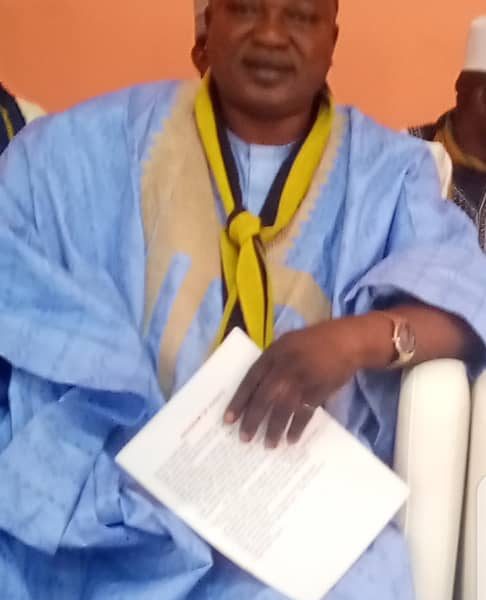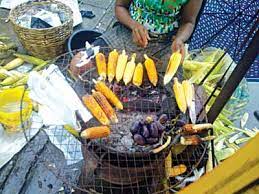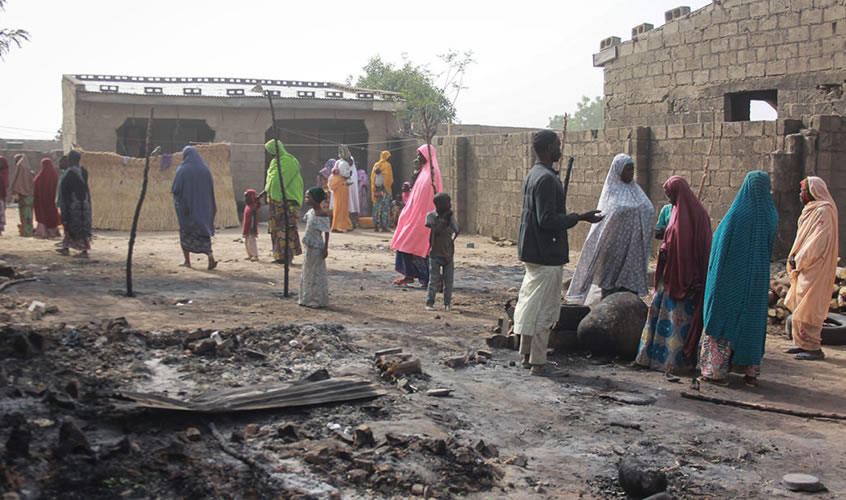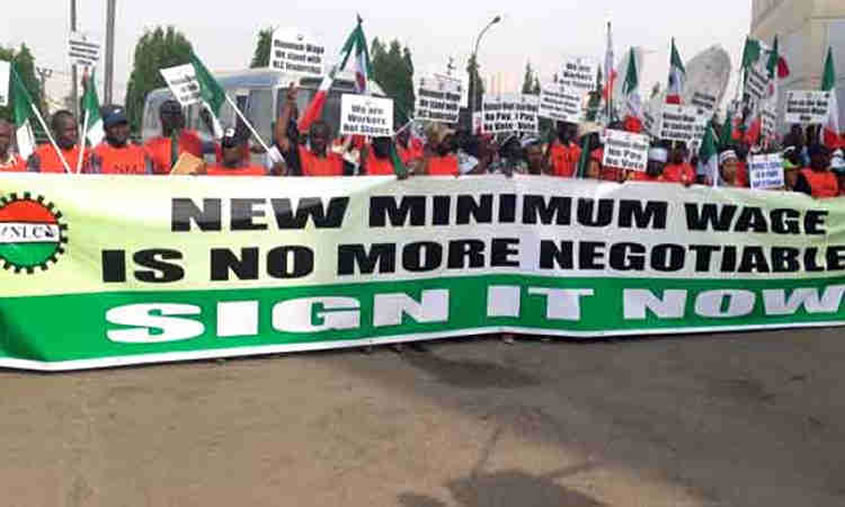Features
Top 10 Good Hotels in Abuja

Are you planning a vacation in the Federal Capital Territory, FCT, Abuja, Nigeria or it is just a business trip. Getting a good place to relax and sleep after the day activities is as important as the activity you are in Abuja to do. adsbygoogle || []). push({});
If you are looking for a really nice place to retire in after the day business, check out the following top 10 hotels and apartment we have compiled for you.
Transcorp Hilton
Transcorp Hilton Hotel top this list. This 5 star hotel, sitting in the heart of the Central Business District is about 50 minutes drive from the Nnamdi Azikiwe International Airport. It is situated on a beatiful landscaped gardens with various recreational facilities and outdoor areas. It offers arrays of leisure and business facilities, casino and arcade, restaurants and bars, 24-hour Business Centre and 24 multi-purpose meeting rooms accommodating up to 1,200 people.
Sheraton Hotel
the second hotel on our list is the Sheraton Hotel. Located within the length and breadth of the numerous sights and sounds. It is one of the city of Abuja’s landmark, a blend of nature and sophostication, promises warmth and impeccable service to cater for every guest desire. The hotel is about 40 minutes to the Nnamdi Azikiwe International Airport. It is withing the reach of the Federal Secretariat and it is located in close proximity to the International Conference Center. It is about 420 guest rooms, 5 dinning options, including lobby bar, fitness center featuring a well equipped state of the art gym, Squash Court, Tennis Court, Basketball Court, swimming pools with personalised services and highly flexible meeting options, state of the art facilities and ideal venue for every need, be it business meetings, large scale conference, social events or wedding.
Wells Carlton Hotel and Apartment
if you are looking for a surreal, fantasy-like journey into a glamorous world of pure luxury and gratifying indulgence our number 3 is the place to be. situated in the plush district of Asokoro, Abuja, the Wells Carlton Hotel and Luxury Apartments features elegantly bespoke Rooms and Deluxe Suites, as well as a Conference Center (and Meeting Rooms) which are perfect for all types of meetings and events. From the walkways filled with iconic works of art, building fixtures of unparalleled craftsmanship, architectural finishing of aesthetic perfection, and a modern style that is second to none, The Wells Carlton Hotel and Luxury Apartments is an experience guaranteed to leave you breathless.
The Wells Carlton Hotel and Luxury Apartments offers its guests 14 breath-taking and stunning Luxury Apartments and Penthouses. In addition, the Wells Carlton Hotel and Luxury Apartments provides a world-class gym and enchanting state-of-the-art swimming pools, Business, Center, Gift Shop, avant-garde bars and four world-class restaurants.
It also boast of an exotic Spa, named Tirta Ayu, as a haven where guests are treated to authentic Japanese and Indonesian spa experiences: a blend of ancient therapeutic remedies and modern-day spa rituals for healthy living and total well-being.
Bon Hotel
the 4th on our list is this 4 star hotel that is located Conveniently located on Negro Crescent, close to Abuja’s city centre, offering comfortable rooms and friendly service. It is about 10 minutes drive from the main city centre, 3 km from the British Embassy and within walking distance of the Irish Embassy. It has 28 spacious rooms featuring a lounge area and king-sized beds, restaurant, bar and coffee shop, free Wi-Fi, 24 hour business centre and a 20 seater executive boardroom ensure that our guests are never without and can get their work done.
Barcelona International Hotel
the fifth hotel on our list is Barcelona Hotels is centrally located at the heart of the city of Abuja with spectacular views and customer friendly staff, Barcelona Internation Hotel is considered as one of the most pleasant hotels to stay in Abuja. It has a large underground car park with the capacity of 200 vehicles at a time, a roof top garden, a roof top restaurant(with an amazing 360 degree view of Abuja), adequate security, chainese and continental dishes all in one place.
It also feature Spa & Leisure, a fitness corner, bicycles and Nordic Walking poles.
Rock View Hotel
Rock View Hotel, the 6th on our list is an ideal place to unwind after a hectic day. It has a fabulous swimming pool that would bring out a unique marine experience. It is equiped with a pool side bar that offers refreshing menu of cocktails in addition to delectable snacks, a multi-faceted buffet, and refreshing menu of cocktails.
Chelsea Hotel
If you want a friendly and relaxing accomodation within the budget, the number 7th hotel on our list is Chelsea Hotel that provide the right blend of service, luxury and efficiency offers small meeting rooms and large conference meeting hall is a good choice for you.
Newton Hotel
This hotel that is located on Cape Town Street, Off Ibrahim Babangida way, Zone 4 has 71 tastefully furnished rooms and suites, a mini bar, complimentary breakfast and access to a swimming pool and health club.
Bolton White Hotel
The number 9th hotel on our list, Bolton White Hotel is approximately 30 minutes’ drive from the Nnamdi Azikiwe International airport, about 5 minutes drive from the international Conference Center/ National Assembly complex and the federal Secretariat.
It has 176 comfortable and stylish luxury bedrooms, en-suite self-catering rooms, great cooling system in all rooms, writing desk and satellite TV, tea/coffee making facilities, direct-detail telephone/modern and Wi-Fi. travel agencies within the hotel, Non-smoking rooms available on request. Various conference and banqueting facilities available with seating capacity from 160 to 200 for conference and banqueting. Each venue is air conditioned, with standard audio visual equipment are available on request. It shared proximity with Silverbird Entertainment Center about which is about 5 min away, A nearby Banks and ATM, Sahad shopping mall: 2 minute’walk. Ceddi plaza: 5 minute’ drive,for cinemas and more.
Toprank Hotel
Our 10th hotel on the list is Top Rank Hotels Galaxy, a well styled hotel strategically located in the quiet, exquisite and serene location in Utako-Abuja. It is about 30 kilometres from Nnamdi Azikiwe International Airport and about 3 kilometers away from the National Assembly Complex. Top Rank Hotels Galaxy is built with style and comfort based on the need for business and leisure.
It services, restaurant, bar, include Airport shuttle, kids corner, entertainment.
Our list is not exhaustive and a guarantee of the best services. You are advised to do a more independent research before checking into the hotels mentioned above.
Author Profile

- Prince Abdulrahman Obaje is a Media, Information and Computer Technology Consultant. A quintessential Journalist, online marketer, social media strategist, Mathematician and Computer Scientist is based in Abuja, Nigeria. He is the Founder and the Publisher of The Informavores!. You can reach me on +234 805 939 5252 or send i-witness report directly to me on news@informavores.com.ng.
Latest entries
 ArticleApril 24, 2024Preventing Fire Outbreak in Solar Power System Installation – Engr Ohida
ArticleApril 24, 2024Preventing Fire Outbreak in Solar Power System Installation – Engr Ohida PoliticsApril 23, 2024Alleged 80.2 Billion Fraud: EFCC May Loose Case Against Yahaya Bello – Ambassador Danjuma
PoliticsApril 23, 2024Alleged 80.2 Billion Fraud: EFCC May Loose Case Against Yahaya Bello – Ambassador Danjuma NewsApril 11, 2024Eid-El-Fitr: ICDA North Central Coordinator Urges Muslim Faithfuls To Abide By Ramadan Lessons
NewsApril 11, 2024Eid-El-Fitr: ICDA North Central Coordinator Urges Muslim Faithfuls To Abide By Ramadan Lessons NewsMarch 20, 2024Investigative Journalists Group, NGIJ Hails Aderinokun on Appointment as Head of Media at Access Corp
NewsMarch 20, 2024Investigative Journalists Group, NGIJ Hails Aderinokun on Appointment as Head of Media at Access Corp

Features
How Corn-Roasting Business Is Transforming Lifes In Abuja

One of the most significant business in the rainy season in Nigeria is Corn cooking or roasting business. push({}); You can see corn in every nook and cranny you got as Some women in Abuja are now smiling and rejoicing due to the reigning business of the season.
The sale of corn has become a money spinner for some women within the territory.
A cross section of women in the Federal Capital Territory (FCT) told NAN that corn business was quite lucrative this rainy season and had become a means of livelihood for them.
According to the women, corn business has become profitable and an opportunity for them to make money.
“Corn has become one of the most common small capital businesses to venture into, especially during the rainy season,” most of them said.
NAN reports that corn sellers cook or roast corn for the delight of their customers, depending on the one that suits their taste.
Mrs Grace Yahaya, a resident of Apo community, who sells boiled corn told NAN that she smiles to the bank from her corn business everyday.
“Before I started this corn business, I was selling Kunu Aya (Tiger nuts beverage), until a friend introduced me to the business.
“Ever since I started the business, it has been more profitable than my Kunu Aya business.
”My daily contribution (ajo) this season has doubled, by the time school resumes, i will be able to assist in paying the fees of my children,” she said.
Yahaya also said that she does the corn business in the rainy season after which she returns to her Kunu Aya business.
“I only do the corn business in the rainy season and after that I return to my usual Kunu business, because I cannot stay idle.
”I make about N3,000 to N5,000 naira daily as against N1500 to N2000 I make from the Kunu Aya business, before I used to make N500 daily contribution but now I make N2000,” she said.
Mrs Godiya Yakubu, a resident of Dogongada community, said corn business was part-time for her.
“Corn business is a sub-business for me. I look forward to rainy season to start the business because it gives me quick money to support my family.
In her words, ”I wait anxiously for this season. I put my groundnut business on hold, to start the corn business.
”’Since I am into corn farming. It is more profitable to harvest, cook and sell, after which I go back to my business,” she said.
Another corn seller, Mrs Theresa Stephen, a housewife in Galadimawa community, said that corn business was the only business she could do.
“Corn business is the only business I do, because it is only during the rainy season.
“I prepare for it, as I plant the maize early and wait for the harvest to start my business.
“After the season, I start planning for another planting season,” she said.
NAN also observed that corn business was not done by women only, as some men also roast and sell corn along the road in the nation’s capital.
Abubakar Musa, a corn seller, along the Airport Road, told NAN that he sold corn in all seasons.
“I sell corn in rainy and dry seasons and the business is very profitable.
“I get my corn from Gada-biu, so whether dry or rainy season my business goes on smoothly,” he said. NAN
Author Profile

- Prince Abdulrahman Obaje is a Media, Information and Computer Technology Consultant. A quintessential Journalist, online marketer, social media strategist, Mathematician and Computer Scientist is based in Abuja, Nigeria. He is the Founder and the Publisher of The Informavores!. You can reach me on +234 805 939 5252 or send i-witness report directly to me on news@informavores.com.ng.
Latest entries
 ArticleApril 24, 2024Preventing Fire Outbreak in Solar Power System Installation – Engr Ohida
ArticleApril 24, 2024Preventing Fire Outbreak in Solar Power System Installation – Engr Ohida PoliticsApril 23, 2024Alleged 80.2 Billion Fraud: EFCC May Loose Case Against Yahaya Bello – Ambassador Danjuma
PoliticsApril 23, 2024Alleged 80.2 Billion Fraud: EFCC May Loose Case Against Yahaya Bello – Ambassador Danjuma NewsApril 11, 2024Eid-El-Fitr: ICDA North Central Coordinator Urges Muslim Faithfuls To Abide By Ramadan Lessons
NewsApril 11, 2024Eid-El-Fitr: ICDA North Central Coordinator Urges Muslim Faithfuls To Abide By Ramadan Lessons NewsMarch 20, 2024Investigative Journalists Group, NGIJ Hails Aderinokun on Appointment as Head of Media at Access Corp
NewsMarch 20, 2024Investigative Journalists Group, NGIJ Hails Aderinokun on Appointment as Head of Media at Access Corp
Crime
Saving the Lake Chad Basin; Solving Myriads of Security Problems in Nigeria

In the northeast, tens of thousands of people have been killed and whole communities and public infrastructure have been decimated in the Boko Haram conflict, one of the most deadly and the most devastating during the past decade. adsbygoogle || []). push({});
Thousands of young girls and women have been abducted and serially raped. Over three million people have been internally displaced while others have fled to neighbouring countries. There is also the problem of massive starvation as farms have been abandoned and camps for internally displaced persons are not adequately catered for with food, medicines and other supplies despite the commendable humanitarian assistance by international organization, foreign governments and the Nigerian national and state governments.
During the past decade also, there has been the problems of wars and massacres involving herdsmen and farming communities in different parts of Nigeria.
The Social Development Integrated Center (Social Action) in conjunction with Development and Peace Caritas, Canada; in a new report claimed that there are similarities in all of these conflicts and advocate for the need to promote a common civic understanding of the genesis of these problems. Hitherto, discourses around these unfortunate developments have had an overwhelming ethnic and religious colouration, which have contributed to dividing Nigeria along those lines.
While delivering welcome address by the Director of the Social Development Integrated Center (Social Action), Dr. Isaac ‘Asume’ Osuoka at the official launch and panel discussion on the report titled BOILING OVER: GLOBAL WARMING, HUNGER AND VIOLENCE IN THE LAKE CHAD BASIN, said that “What we have realized in our engagements and associated research is that there are intersections of an ongoing ecological crisis and violent conflicts in the Lake Chad Basin and the Sahel region generally.
“In the other areas of Nigeria such as the Niger Delta, decades of environmental damage caused by the petroleum industry created local impoverishment and unemployment that encourage armed insurgency and banditry.
Therefore, both in the north and the south of the country, as agencies deal with the immediate challenges of insecurity, we need also to have a conversation about how to address the underlying ecological and governance problems that created the vulnerability in the first place.”
Osuoka also said that, “the findings of their research in northeast Nigeria is in accord with the view expressed by the Nigerian government that climate change is responsible for decades of drought and desertification in the Sahel region.”
Before the advent of Boko Haram in 2009, the Lake Chad Basin had undergone dramatic climate changes, resulting in the near-total drying up of the lake. Between 1963 and 2019, the Lake Chad had lost over 95% of its original size of over 22,000km2 to just a little above 1,000km2 impacting adversely on the livelihoods and the altering of migration patterns. It impacts include reductions in the pasture for livestock and fertile land for food production.
The near total loss of Lake Chad has had profoundly negatively impacts on fishing and agricultural livelihoods as the Lake used to serve as a lifeline for millions of people. By 2009, many young and able men in the Lake Chad Basin were unemployed!
The droughts of the 1970s and 1980s put pressure on the Nigerian government to build several dams and irrigation projects, sometimes with international credit facilities. Many of these projects started without adequate assessment of environment and social impacts, the report revealed that, in many cases, gains from such projects were overshadowed by massive dislocation of poor farmers and herdsmen who were removed from irrigated land in favour of politically connected persons. This was responsible for the peasant protestation against displacement by dams, which resulted in the Bakolori Massacre of 1980. The Maitasine revolt and massacre also happened in the same year. It is instructive to note that in the case of Maitasine, it was an Islamic sect that led the poor to revolt. “We can only imagine the social conditions in northeastern Nigeria that turned young men into butchers of fellow men under the banner of Boko Haram years later.”
“What the report we are presenting today shows is that understanding the social ecology of violence is imperative to sustainable peace in northeast Nigeria and elsewhere.” Osuoka reiterated.
In all of these, the reality of poor governance cannot be ruled out.
Osuaoka said, “However, if we say that climate change is a causative factor for the situation of insecurity, we do not suggest that it is the only cause. The reality of poor governance, the looting of funds by officials and contractors and the resultant abandonment of ecological restoration and development projects, many of which have been implemented without adequate consideration of environmental impacts, have all provided triggers for the crises.
So far, there have been reports, and widespread public perception of mismanagement of funds voted for humanitarian assistance in northeast Nigeria. When the state officials act with little regard for the human rights of citizens, the result is a germination of a culture of impunity.”
Now we have a crisis that the government alone cannot address without the support of the civic leadership. Our shared understanding of the urgency of the challenges at hand and the necessity for concerted actions to achieve peacebuilding, national development goals and a sense of global justice is key to solving the problem we found ourselves in.
Author Profile

- Prince Abdulrahman Obaje is a Media, Information and Computer Technology Consultant. A quintessential Journalist, online marketer, social media strategist, Mathematician and Computer Scientist is based in Abuja, Nigeria. He is the Founder and the Publisher of The Informavores!. You can reach me on +234 805 939 5252 or send i-witness report directly to me on news@informavores.com.ng.
Latest entries
 ArticleApril 24, 2024Preventing Fire Outbreak in Solar Power System Installation – Engr Ohida
ArticleApril 24, 2024Preventing Fire Outbreak in Solar Power System Installation – Engr Ohida PoliticsApril 23, 2024Alleged 80.2 Billion Fraud: EFCC May Loose Case Against Yahaya Bello – Ambassador Danjuma
PoliticsApril 23, 2024Alleged 80.2 Billion Fraud: EFCC May Loose Case Against Yahaya Bello – Ambassador Danjuma NewsApril 11, 2024Eid-El-Fitr: ICDA North Central Coordinator Urges Muslim Faithfuls To Abide By Ramadan Lessons
NewsApril 11, 2024Eid-El-Fitr: ICDA North Central Coordinator Urges Muslim Faithfuls To Abide By Ramadan Lessons NewsMarch 20, 2024Investigative Journalists Group, NGIJ Hails Aderinokun on Appointment as Head of Media at Access Corp
NewsMarch 20, 2024Investigative Journalists Group, NGIJ Hails Aderinokun on Appointment as Head of Media at Access Corp
Article
How can workers win a decent minimum wage in a country like Nigeria?

Narrowing the gap between the rich and the poor will naturally solve a lot of inherent problems in our society. If the majority of the Nigerian population can be gainfully employed and there is equality in the society, kidnapping, arm-robbery, terrorism are some of the crimes that would be at the barest minimal. adsbygoogle || []).push({}); adsbygoogle || []).push({});
Taking a look at the national minimum wage, the foot soldiers that fought for it actualization and the cadre of people that have the lion share at the end of the day, we know that our system is not been fair to some extent. Well there are other opinions that am willing to share here.
As a decent minimum wage can be described as a wage that can provide workers basic necessity of life such as decent food, decent shelter, quality education, quality health, and shelter, etc., workers will continue to crave for descent income. Though, getting new minimum wage has always been a struggle, this is not a new phenomenon in the whole world as a piece and in Nigeria especially. Struggle for minimum wage can be traced as far back as the start of the labour market itself.
Before the coming of Hassan Sunmonu as first president of the Nigeria Labour Congress in 1978, there was no history of a structured minimum wage for workers in Nigeria. It must be said that the Udoji pay package of 1975 was not regarded as a structured minimum wage, because it was not negotiated by workers’ representatives.
The then president of the NLC was encouraged to begin agitation for a minimum wage following a pay rise for political leaders at the time. He called for a N300 per month minimum wage in 1981. This led to a major strike, which culminated in President Shehu Shagari and the Hassan Sunmonu-led executive agreeing to a N125 per month pay package.
Those that led the negotiation on behalf of the Federal Government included the then Vice President Dr. Alex Ekwueme, the then Senate President Dr. Joseph Wayas, and Speaker Edwin Ume-Ezeoke.
When the late Pascal Bafyau was NLC President. Adams Oshiomhole led another negotiation in 1989/90 talks as Bafyau’s deputy. The discussions resulted in workers receiving N250 per month.
During the administration of General Abdulsalami Abubakar an opportunity for another round of negotiation presented itself in 1989/90,. The minimum wage was reviewed to N3,000. The team was not an organised labour body but a committee of industrial unions, led by Sylvester Ejiofor.
Another negotiation took place while Oshiomhole was NLC President between 2000 and 2001. Demands for N5,500 for state workers and N7,500 for their federal counterparts and oil-producing states were agreed to. There were unique features to this deal; provisions were made that the following year (2002) there would be a 15 per cent increase across board, and a 25 per cent increase in 2003. These, however, were not fulfilled. The current N18,000 minimum wage, due for a review since 2015, was negotiated under NLC President Abdulwahed Omar.
Recently, N30,000 minimum wage has been approved after several face-off between the organised labour union and the federal government, what’s the value in real time? Is this minimum wage enough to sustain a descent family?
In 1983 for instance, the minimum wage was N125. That was a time that N1 is almost equal to $2. By this, it means that in 1983, Nigeria’s minimum wage was about $220. Between that period and now, several devaluation of our currency had occurred. When the N18000 minimum wage was signed into law years back, during when a dollar was roughly N165 which summed up to a little over $100. Far below the minimum wage got in 1983, which was over $200.
Today, N30,000 minimum wage is below $100. The real question is, if the value of our minimum wage in 1983 is almost tripling that of today, can we say that we are doing great or not? We must then ask ourselves, what a decent minimum wage is.
During the just concluded presidential campaign, People’s Trust Presidential candidate, Gbenga Olawepo Hashim promised to pay a minimum wage of N50,000. He made it clear at the time that even N50,000 is not enough as a minimum wage, but it’s still better than what is currently obtainable;
Similarly, Africa Action Congress Presidential Candidate, Omoyele Sowore also promised to pay a N100,000 minimum wage. In his views, if we want to get the best from our workers, we must pay them a decent minimum wage and to him, N100,000 is that decent wage.
So, how can workers get this decent minimum wage? The answer is not clear, especially when most states didn’t pay when the N18000 minimum wage was signed to law. What is however clear is that, we must change the working culture of government establishments so that workers can be as productive as those in the private sectors. Productive workers can certainly negotiate for better pay. Even the employer will do almost everything it takes to make them happy. But in a situation where government see paying workers as favour, partly due to lack of productivity, it becomes difficult to negotiate for improvement or decent pay
This is especially because the value of work is not inherent in worker, but depends on where worker work and his/her level of performance. As workers will be more productive in some occupations, industries, and firms than in others, and most workers also have considerable control over the productivity of their work hours. All economic systems interested in maximising output thus face the problem of devising mechanisms for allocating workers to the sectors where their potential productivity is highest and for eliciting high levels of performance within organisations.
The demand for labour ultimately depends on the value of the output produced by labour, evaluated at the market prices that consumers are willing to pay. At prevailing wages, employers hire more workers only if doing so adds to profits – if the value of additional output produced exceeds the additional costs. At any given moment, higher wage costs reduce profits and hence employment, and conversely. (The tension between wages as the price (cost) of labour and wages as worker income is seen most directly here – higher wages imply higher income for some workers but less employment because of higher (wage) costs.) Labour supply depends on the alternatives available to workers in each labour market compared with the value they put on leisure time. Workers choose the job that maximises net compensation (including both monetary and non-monetary benefits and costs). Once a job choice is made, a voluntary job change will occur only if higher net compensation is offered at another job.
The conflicting interests of employers (demand) and workers (supply) rather than administrative announcements produce a market wage. Deviations from the market wage rapidly become apparent. Employers offering wages below the market rate experience high quit rates (voluntary departures) and recruiting difficulties, while those offering above-market wages have relatively high labour costs and many job applicants.
These forces move wages toward the market equilibrium wage that balances the amounts of labour demanded and supplied.
Shifts in either labour demand or labour supply can produce changes in wages. If demand for an industry’s product increases, i.e. consumers are willing to pay more for the industry’s output, each firm in the industry can increase profits by hiring more workers, even though a higher (relative) wage offer may be necessary to attract workers to the industry from other jobs. Conversely, there will be downward pressure on pay as it becomes less profitable to employ workers in declining sectors, a process that encourages workers to move to growing sectors, thereby facilitating the reallocation of labour resources in response to structural changes.
It becomes two thing to respond to this question perfectly, first, workers must be up and doing in order to be seen as an asset and not liability. Secondly, labour leaders must stand for workers and not for themselves to achieve a decent Minimum Wage in Nigeria.
The Publisher, Times Nigeria Magazine, Abdulrahman Aliagan said that “Nigeria workers can actually win a decent Minimum Wage only if they are ready to contribute to the nation’s economy greatly. Nigerian workers are yet to convince government that they are celebrants and not tolerants. From the look of thing Governments at various level are not celebrating their workers they are tolerating them.
“Government is ready to do away with so many workers and no worker is ready to do away with government. From the recruitment level to deliverables it is a square peg in a round hole. Government is nothing but a business and in any business there must be a corresponding value, if business is not bringing value then it does not worth doing.
“To be realistic, can any private business owner runs his or her business the way civil servants run government businesses? If answer is no, then workers cannot win a decent Minimum Wage in Nigeria because they are not giving decent services.
“Take a visit to any Federal Ministry in Nigeria on Monday and see what going on there, some even is brought their products and markets to sell, while some engage in talks from morning till the closing time. So as an employer how do you happy paying somebody who contributes nothing a robust wage? Government are forced to pay workers not that they are happy to pay.
“Let us look at what is happening at the Local government levels, throughout Nigeria no local government is functioning optimally with the exemption of Lagos, may be Port Harcourt, go to my state in Kwara some are not even going to office and yet they will be clamouring for wage rise and this is happening almost in all part of the country. Nigeria’s workers population supposed to be an asset but it turns around to be liability.
“To answer this question very frankly, Nigeria workers cannot win decent minimum wage unless they contribute decently. When they are begin to be seen as a factor, when they are seen as an asset and not when they are being seen as liability. Until then, government will continue to take workers for a ride.
“If this can be achieved, then it behoves on the labour leaders to jettison personal gains and stand for the interest of Nigerian workers, history have shown that labour leaders at various organisation are not speaking the minds of workers rather they speak for themselves, labour leaders compromised and collaborate with government to create loopholes for government to take on workers.”
Well, I think a tour of the Scandinavian societies may provide an insight to this problem of national minimum wages.
Author Profile

- Prince Abdulrahman Obaje is a Media, Information and Computer Technology Consultant. A quintessential Journalist, online marketer, social media strategist, Mathematician and Computer Scientist is based in Abuja, Nigeria. He is the Founder and the Publisher of The Informavores!. You can reach me on +234 805 939 5252 or send i-witness report directly to me on news@informavores.com.ng.
Latest entries
 ArticleApril 24, 2024Preventing Fire Outbreak in Solar Power System Installation – Engr Ohida
ArticleApril 24, 2024Preventing Fire Outbreak in Solar Power System Installation – Engr Ohida PoliticsApril 23, 2024Alleged 80.2 Billion Fraud: EFCC May Loose Case Against Yahaya Bello – Ambassador Danjuma
PoliticsApril 23, 2024Alleged 80.2 Billion Fraud: EFCC May Loose Case Against Yahaya Bello – Ambassador Danjuma NewsApril 11, 2024Eid-El-Fitr: ICDA North Central Coordinator Urges Muslim Faithfuls To Abide By Ramadan Lessons
NewsApril 11, 2024Eid-El-Fitr: ICDA North Central Coordinator Urges Muslim Faithfuls To Abide By Ramadan Lessons NewsMarch 20, 2024Investigative Journalists Group, NGIJ Hails Aderinokun on Appointment as Head of Media at Access Corp
NewsMarch 20, 2024Investigative Journalists Group, NGIJ Hails Aderinokun on Appointment as Head of Media at Access Corp